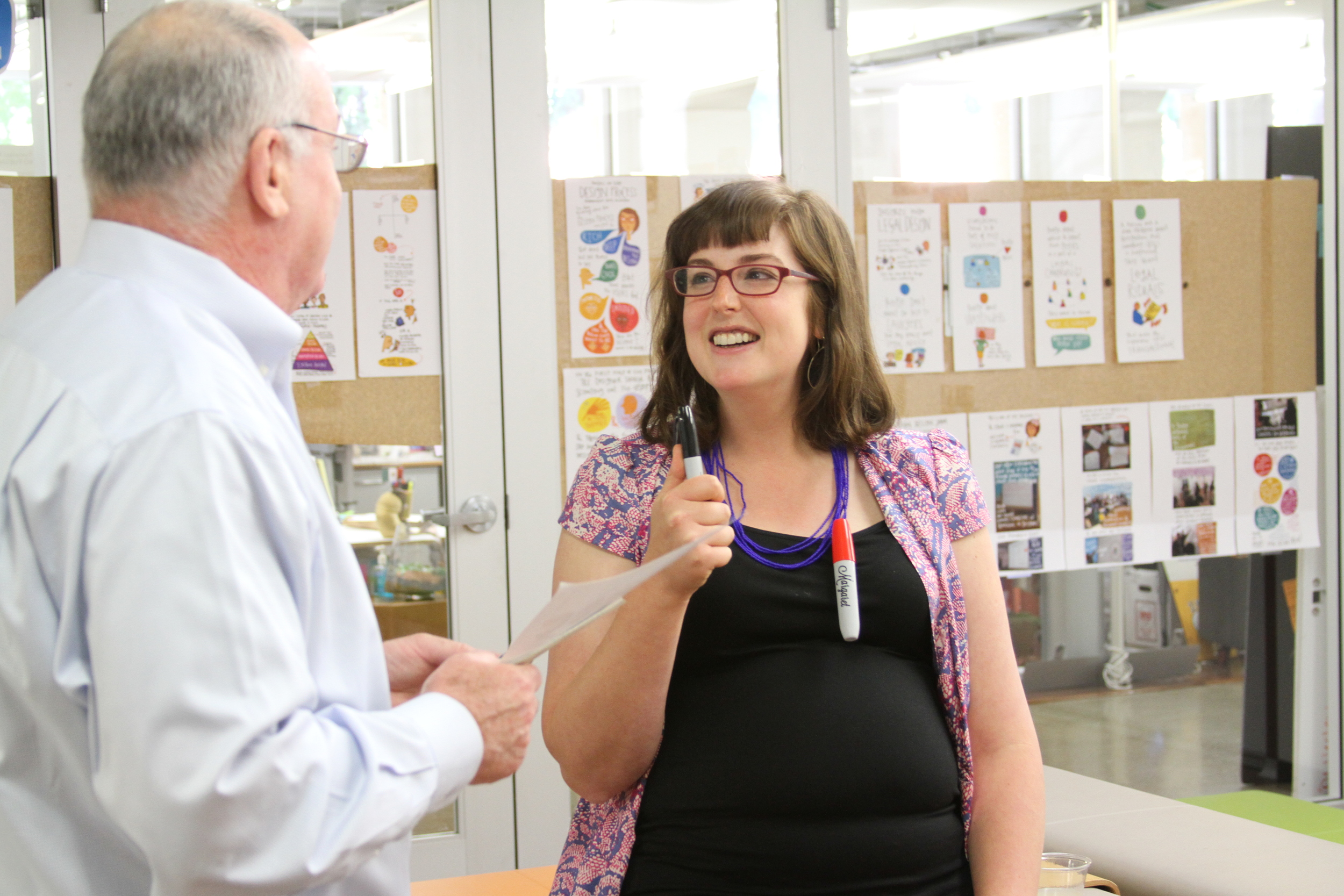José Torres on Legal Design and Access to Justice
International Economics lawyer Jose Torres speaks with Kleros about legal design.

The user interface of traditional legal systems would probably fail a usability test. It's main tenets were built in the 18th Century and is full of jargon, much of which comes from French (force majeure) and Latin (mens rea).
It shouldn't come as a surprise, then, that it takes several years in law school to learn how to master the court system.
In recent years, a new discipline called legal design was born. It seeks to apply concepts from the startup and design thinking fields into the legal industry to make it more user friendly and foster access to justice.
Tell us a little bit about you and your background.
I’m from Colombia, I’m 34, I’m a lawyer from the Universidad de los Andes here at Colombia, I have a Masters in International Economic Law and I practiced in different areas.
I used to be an international trade and investment lawyer at the World Trade Organization and afterwards at the arbitration group at Skadden, Arps, Slate, Meagher & Flom in London. Then I came back to Colombia and I set up here a Center for Innovation in Law at a local university called Sergio Arboleda.
In that program, I started merging technology, design, entrepreneurship and law to prepare future lawyers for the 21st century legal practice. The goal was to get them more creative, more familiarized with tech and business models. The outcome of that work led me to become the first fellow of the Legal Design Lab at Stanford University.
At the Lab, I got the chance to dig deeper into the intersection of design, law and technology. I had a lot of fun, as you can imagine. I did some research on using design for online dispute resolution and access to justice and a little bit of research on smart contracts.

Tell us a little bit more about your experience at Stanford and the type of legal research that is being conducted there…
Stanford has two centers on legal innovation - the first one is CodeX, a joint venture between School of Engineering and the School of Law. In that center, they do research on the application of technology in the practice of law. For example, how you can use technology to automate legal reasoning, how to make better research and enhance legal capabilities.
The other center (where I was a fellow) is called the Legal Design Lab, a joint venture between Stanford’s Hasso Platner School of Design (the D School, as it is commonly known) and the Law School.
Its goal is to embed design thinking into law and to reimagine how legal services can be provided. It seeks to instill an innovation and creativity mindset into the students and to do research into a variety of areas. One of them is access to justice, the other being how to create innovative legal organizations in law firms and legal departments and also how you can innovate government services in general.
Why have we not seen much innovation in legal services in the past years compared to other sectors of the economy?
You are completely right, we have just started to see innovation in law in the past ten years or so. There are a couple of reasons.
The first is that, in general, lawyers are conservative and have been educated to become risk averse. Lawyers are educated to caution clients against legal risks. And this ends up being translated into everything we do as lawyers, so we just become risk averse in this way.
The fact that law has been a regulated profession has inhibited innovation significantly, because regulation has protected the profession from competition. It has prevented other disciplines entering into legal practice or legal services.
That is the very reason why we have started seeing engineers getting interested in creating startups in legal services, or in your case - creating a system like Kleros, given that you are not lawyers.
Law has also been very insulated as a profession, even though in legal doctrine we might have areas such as law and economics or law and sociology. In general, even though we studied the substance of the law, we haven’t studied very deeply how to become better lawyers and how to provide a better service.
If you look at other industries, usually companies have a percentage of their revenue dedicated to R&D and innovation. That has not been the case in legal services at all.
When you look beyond the US and the UK, the profession has been even more conservative, there is less access to knowledge, and in the case of Colombia we also tend to copy the US or the UK law firms and their lack of innovation. Unfortunately, it is this lack of innovation that has been traveling across borders.
In the past years, we have seen some emerging innovation in the legal field, like RocketLawyer or LegalZoom and others applying AI. What has sparked innovation in this traditionally conservative industry?
The fact that the industry has never faced competition from startups has been viewed as a huge opportunity - the legal market is quite big in the US and worldwide. Some individuals have just decided to go straight on and challenge the profession, which is the case of LegalZoom and RocketLawyer, for example.
The general driver in the last ten years has been that the citizens in general have become very displeased with the profession and there is a worldwide crisis in access to justice. In whichever country you go, courts just don’t work. That’s irrespective of whether you are a developed or a developing country, rich or poor, large or small. Legal services have become more complex and more expensive, contrary to other areas of the economy.
The way legal services are developing has caused the people to cry out and demand that lawyers get out of the way and bring in different professions that can add a lot of value, because lawyers have a limited skillset. We already know what that skillset can do - it has not led us to create good courts. This discomfort has just caused other areas of the economy to jump in.
In some countries, innovation in law is also viewed as a factor of the competitiveness of the economy. In the case of the UK, for instance, the legal system has historically been very attractive to business. To the extent that it got slower, that had a huge impact on the economy and made the UK legal system less attractive for business. That area of seeing the law as a competitive advantage for a country has moved forward countries like Canada, the UK and Singapore to really become more innovative, so they continue to be attractive economies for business.

Tell us a little bit about legal design: how does this process work from start to the creation of a product?
Legal design a combination of design driven innovation applied to different areas of the law. You can apply the design process to law firms, to government services and to legal departments. There is a certain fetishism around which is “the right” design process to follow, but in general, what human-centered design strives for is to make sure that the user is put at the center of the service or the product and make sure that whatever it is that you are designing is usable and engaging from a user perspective.
This is a very new concept in the law. Law has been produced historically by lawyers for lawyers, without keeping the citizens in mind. If you go through any piece of legislation, they are drafted to be complex, not for us as regular citizens to understand.
By putting the user first, legal design seeks to produce regulation, contracts, legal pieces of information in a manner that anyone can understand, which is the whole purpose of a democracy.
Another big area of the design process is just making sure that you are synthesizing information with different research methods, doing tons of prototyping and conducting experiments to figure out really quickly what works and what does not.
If you think about the courts, for instance, we have run very few experiments, so no one knows what a 21st century court should look like. If you look at the area of design, we have run loads of experiments with software, with hardware, even with furniture - you can have a million different types of chairs for different types of services.
A court has historically been viewed as a physical place that you have to attend. If you apply creativity to this and start reframing what a court might be, you can come up with different types of courts.
In my research at Stanford, I designed a court for low claim labour disputes in Colombia only using text. In your case, you are using blockchain and game theory to also imagine what a concept of a court could be like.
Another area that has been growing significantly has been visualising and simplifying legal information.
A key example is privacy policies. No one reads privacy policies online. If you reimagine what a privacy policy is and stop thinking about it as a legal document, but instead you start thinking of a privacy policy as a core part of the user experience in a service, that changes dramatically how you design a privacy policy and how you show it to a user. With a good privacy policy, you want to make sure that the user actually trusts your product and that the communication is transparent.
Another core idea in design is just having a bias toward action and building to learn. In law, usually, we like to reflect and think a lot, but there is not a bias towards action. We like to write a lot, but we don’t like building and creating stuff. Just the fact of creating different types of artifacts, they can be digital or paper-based, physical or online, just building to learn how a system might work better is also a core area where design can bring a lot value to the law.
This is a challenge we usually face at Kleros. Some old time lawyers are skeptical about our approach to dispute resolution. They say “this is not a legal service” or “this is not how the law could evolve”. So, how do you think this skepticism can be bridged, are there any quicker wins that we could seek?
I think you just have to have a rough skin and really believe in whatever it is you are doing and realize that history is on your side. There hasn’t been a profession in history that hasn’t changed and I think it is the time for law to change.
In terms of getting quick wins, the key driver is to engage very closely with the private sector and companies that are fed up of having to use the same legal services that aren’t providing any value.
I think that the private sector is going to be the key driver in legal innovation, both in terms of policy and in terms of new types of services. So, in the case of Kleros, for instance, instead of trying to convince the governments to make this an integral part of their court system where you are going to find tons of resistance, it is better to go to a bank or an insurance company and figure out how you can use Kleros to help them solve much of the consumer disputes they have which they also know cannot solve in courts. They are also tired of solving those disputes in a very old fashioned way.
Another core tenet of design which is beautifully demonstrated by Kleros is the idea of radical collaboration between disciplines. If you look at the system of Kleros, you have game theorists, you have philosophers, you have economists, you have lawyers, you have the crypto community and you have technologists working together.
That is as radical as it can get, I think it is hard to find a legaltech startup that was created by someone who is very deep into philosophy, for instance, or where game theory is a key driver.
That's a direction in which law needs to evolve.
Before you go... interested in becoming a Kleros Juror?
You can always sign up to become a juror adding your email to a mailing list. Use of our juror platform is fully decentralized of course but this lets us get in touch to notify of any pilots or real Dapp's ready for you to arbitrate on.

Join Kleros!
Join the community chat on Telegram.
Visit our website.
Follow us on Twitter.
Join our Slack for developer conversations.
Contribute on Github.


